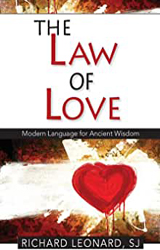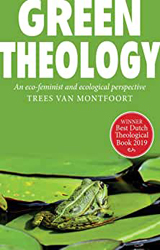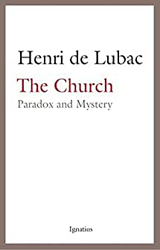 The Church: Paradox and Mystery
The Church: Paradox and Mystery
Henri de Lubac
In these reflections, written at the end of the Second Vatican Council, de Lubac—who played a key role at the Council yet was leery of rapid reform—searches out the wrinkled, mysterious beauty of the Church he loves as his mother.
These seven brief studies on the mystery of Christ's Church illuminate the documents of Vatican II and offer nourishment and clarity to those confused by turbulence or hypocrisy among Christians.
2021 219 pages R365.00
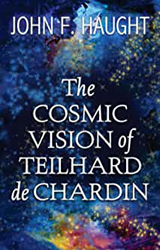
The Cosmic Vision of Teilhard de Chardin
John F. Haught
An expert in Teilhardian thought brings together for the first time Teilhard in conversation with other significant religious thinkers, philosophers, and scientists, including Kant, Whitehead, Barbour, Moltmann and Tillich, on topics ranging from the problem of suffering to astrobiology. Teilhard de Chardin has been much admired as well as much misunderstood.
In this unique treatment, John F. Haught clarifies Teilhard’s thought, while not shying away from the controversies and criticisms. Each chapter explores a different topic—including the cosmos, spirituality, suffering, thought, God, and life—and how each topic has developed the author’s own theology. In particular, Haught focuses on the cosmic future and the implications of Teilhard’s thought for this century and beyond.
2022 280 pages R560.00
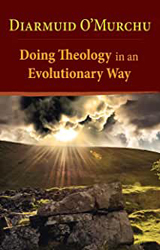 Doing Theology in an Evolutionary Way
Doing Theology in an Evolutionary Way
Diarmuid O'Murchu
Points the way toward a Spirit-driven evolutionary perspective, in which Creation is God's primary form of revolution.
It is in the power of that Spirit that Jesus incarnates afresh God's embodied presence in our midst, and encourages us on the way to becoming creative participants in God's unfolding mission.
2021 232 pages R485.00
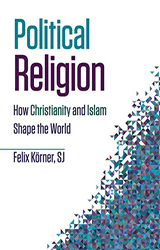
Political Religion: How Christianity and Islam Shape the World
Felix Körner
Few would deny that these religions have played, and still play a major role in world affairs.
This book looks at seven models of how Christianity and Islam have influenced society concluding that religion is most authentic when it uses its power to shape the world not through violence, but in a positive manner.
2020 303 pages R555.00
















